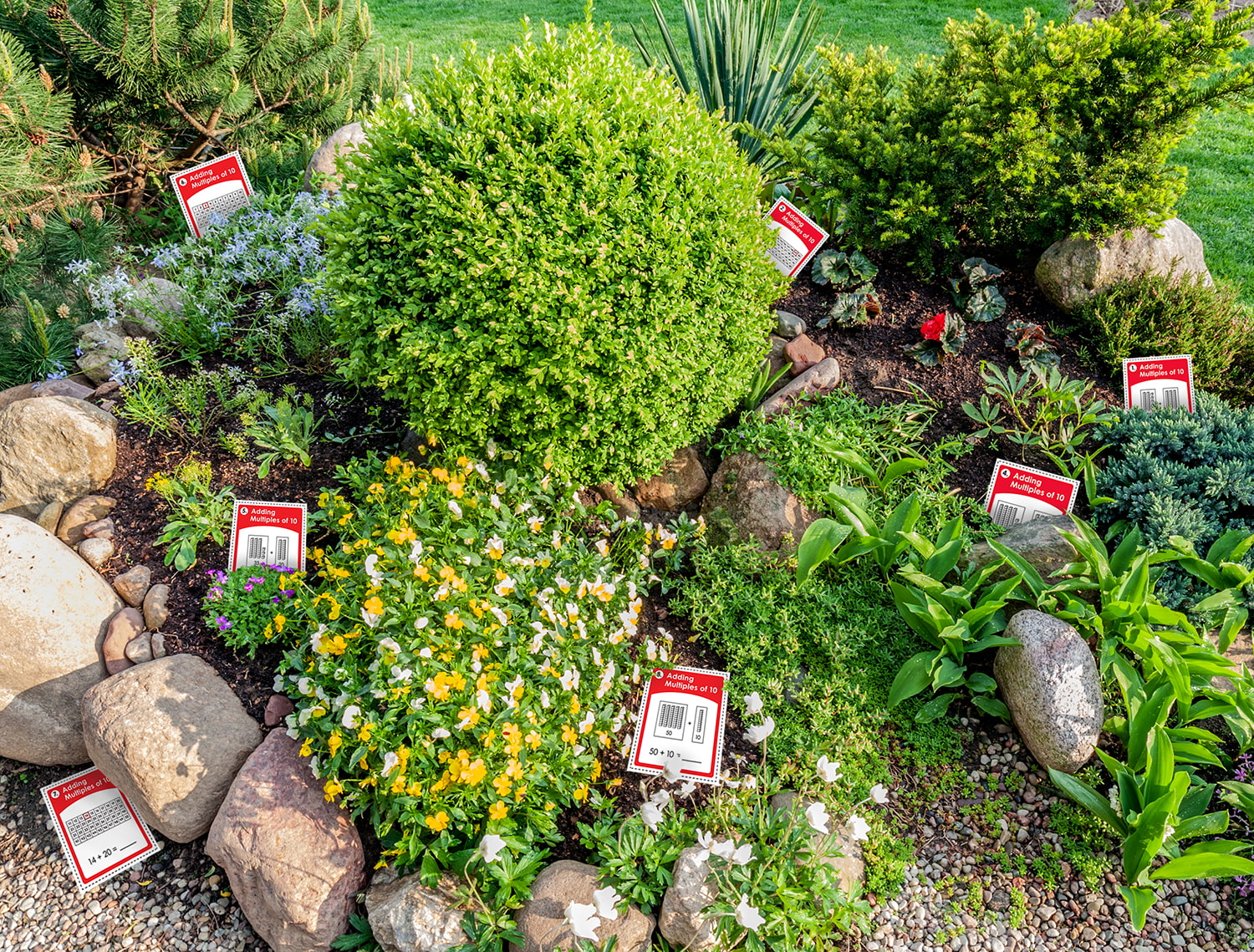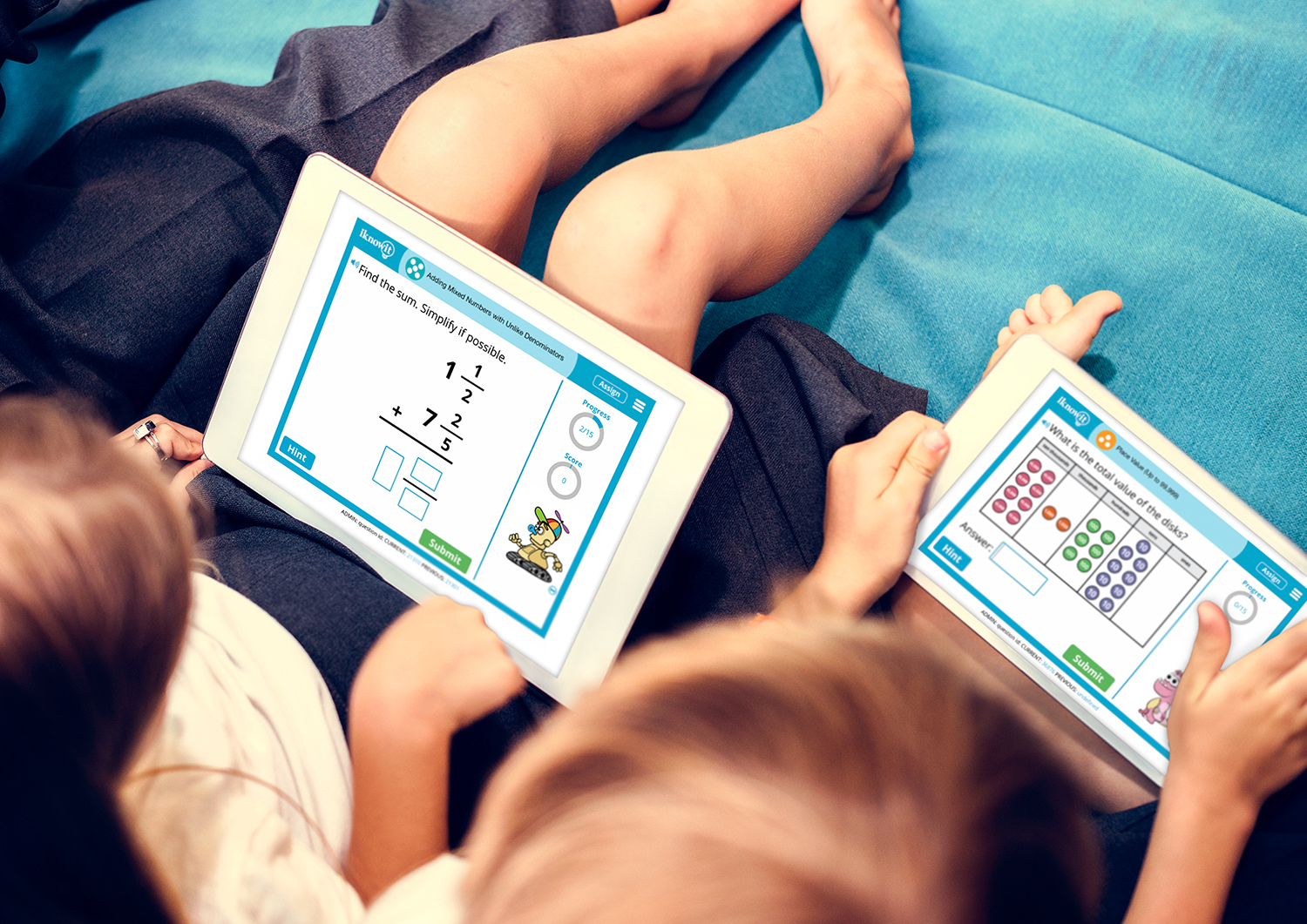
Whether you are a teacher striving for creative ways to wrap up your math curriculum in a distance-learning format or you are a parent who has plummeted head-first into an unexpected homeschool journey, you can help your little ones end the school year on a high note—and we're here with practical tools to help! This article features five tips for reviewing math skills with students at home. With a little ingenuity on your part, you can help your students review important math skills they have worked hard to master this year. Read on to find out more.
End-of-the-year review sessions may look a little different for many schools this year. Even so, your students can gain valuable opportunities to review math skills at home. Following are five ideas to help you make at-home review sessions a success.

Do you have a closet full of family board games? Grab your kids' favorites and get ready to put a math spin on some classics. There is no need to change the rules for games like Monopoly, Yahtzee, or Rummikub—games like these challenge students' math skills by design. Children can practice basic addition and subtraction, budgeting and money skills, probability, strategy, critical thinking, patterns, and sequencing, just to name a few math skills. Other classic games can easily undergo a "math makeover" with a few additional rules. For example, consider a game of "math checkers." Write addition facts, subtraction facts, multiplication facts, or division facts on the dark squares of a checker board. Each time a child wants to move his or her game piece to a specific square, he or she will have to correctly say the math fact on that square or forfeit a turn to the other player. See what other games you have on hand that can be turned into math games!
You don't need to limit math practice to board games. There are plenty of math review games you can play with dice or a deck of cards too.
Consider these review games you can play with dice:
Check out these math games you can play with a deck of cards:
Whether your students use their favorite board games, dice, or a deck of cards, they can review important math concepts while playing a fun game.

Tons of practical learning takes place right in the kitchen, and this is a great opportunity for your students to apply their math skills to a hands-on cooking or baking project. Making recipes requires important math skills like basic operations with fractions and understanding equivalent fractions, as well as knowledge of temperature and time. Here are some practical ways your little learners can put their math skills to the test in the kitchen:
As you work with your students in the kitchen, you'll run into dozens of scenarios where they are required to use different math skills. Plus, a warm batch of chocolate chip cookies is a pretty sweet reward for math practice, don't you think?

Late spring is a wonderful time to plant a garden, and this activity is the perfect opportunity for kids to apply their math skills to another fun, hands-on project the whole family will enjoy. Depending on where you live, you may find that planting a backyard garden is totally doable, or you may prefer to opt for a smaller container garden or even an herb box on the kitchen window sill. Adapt this project to the needs and resources of your family. Here are just a few of the math skills your students will put to the test as they plant a garden:
Not only will your students practice important math concepts like these as you plant a family garden, but you will create lasting memories from this meaningful shared experience!

A scavenger hunt is an exciting way to practice a variety of math skills! Hide math problems around the house and send your students on a treasure hunt to find them all. Browse through printable task cards and use them for your scavenger hunt game. Your students can practice math concepts like addition and subtraction with regrouping or without regrouping, measurement, angles, area, fractions, decimals, multiplication, division, money, time, rounding, and more.
Hide the task cards in challenging spots around your house. Tell your little ones how many task cards they will need to find on their scavenger hunt. Each time they find a task card, they will need to solve the math problem and write the answer in their notebook. See if they can find all the task cards and solve the problems correctly!
Here are a few ideas to make the most of this math scavenger hunt game:
You'll be the math review hero with this awesome scavenger hunt game!

Take your math review game to the next level with interactive online math activities! We would be remiss to give you tips and resources for successful at-home math review if we didn't include the wonderful math practice tools on iKnowIt.com! The "I Know It" online math program makes a great alternative to some of the more hands-on games and family activities we have presented above. Students can work individually on a variety of math skills, including numbers and place value, addition, subtraction, multiplication, and division, word problems, fractions, money, measurement, decimals, time, geometry, and much more.
Students love using "I Know It" math lessons at home because each activity presents as a fun, yet challenging, math game. Silly animated characters cheer students on in their practice sessions and kids can earn math awards for their "trophy case" for every new math concept they master. Math review is exciting, engaging, and fun on "I Know It"!
It can be difficult to know how to make the most out of math review at home, but we hope these five ideas are great reminders that reviewing math skills with little ones can be simple, memorable, and fun.
Did you try any of these review games with your at-home learners? We want to hear from you! Drop us a line in the comment section below. Also, remember to tag @iknowit on social media so we can check out your fun review sessions.